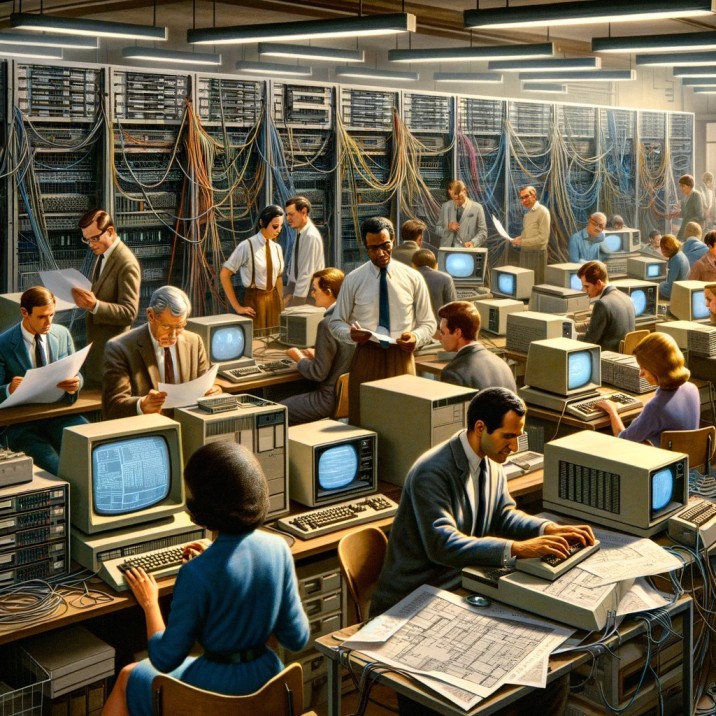The internet, a revolutionary technology that has reshaped every aspect of our lives, from communication to commerce, had its origins in the late 1960s. This article explores the inception, development, and impact of the Internet from its early days to the present era. January 1, 1983 is considered the official day that the Internet was born.

The Inception (1960s-1970s)
The story of the internet begins in the 1960s, during the height of the Cold War, when the United States Department of Defense commissioned a project to create a network that could withstand potential nuclear attacks. This project, known as ARPANET (Advanced Research Projects Agency Network), is widely considered the precursor to the modern internet.
In 1969, ARPANET achieved a major milestone when it facilitated the first successful message transmission between computers at UCLA and Stanford. This event marked the birth of networked communication. The early 1970s saw the introduction of the TCP/IP protocol suite by Vint Cerf and Bob Kahn, which became the standard language for internet communication.
Expansion and the World Wide Web (1980s-1990s)
The 1980s witnessed significant milestones in the development of the internet. The National Science Foundation (NSF) created a backbone network called NSFNET in the mid-80s, which linked various regional networks and opened the door for broader academic and research access to the network.
However, the most transformational development occurred in 1989 when Tim Berners-Lee, a British scientist at CERN, proposed a system known as the World Wide Web (WWW). The Web, which utilized the internet for transmitting information, was user-friendly and more accessible to the general public, thanks to its hyperlink-driven method of navigating data.
The 1990s were marked by rapid commercialization and public adoption of the internet. Browsers like Netscape Navigator made the web easier to navigate, while the launch of search engines like Yahoo! and Google revolutionized information retrieval.
The Era of Broadband and Social Media (2000s-Present)
The turn of the millennium witnessed the rise of broadband, which provided faster and more reliable internet access to users. This era also saw the advent of social media platforms like Facebook, Twitter, and YouTube, which drastically altered how people interact, share information, and even perceive their realities.
The 2010s were characterized by an explosion in mobile internet access, thanks to smartphones and tablets. Internet technology became more integrated into everyday objects, leading to the concept of the Internet of Things (IoT).
Challenges and the Future
Despite its immense benefits, the internet has brought challenges, including privacy concerns, cybercrime, and the digital divide – the gap between those who have or do not have access to modern information and communication technology.
Looking forward, the internet is poised to continue evolving. Emerging technologies like 5G, artificial intelligence, and blockchain are expected to drive the next phase of internet evolution, offering faster speeds, enhanced security, and new applications.
From a military project to a global phenomenon, the internet has come a long way since its inception in the late 1960s. It has not only transformed how we communicate, learn, and do business but also raised significant challenges that need addressing. As we move forward, it remains imperative to harness the benefits of the internet while mitigating its challenges, ensuring it continues to be a force for positive change in society.


